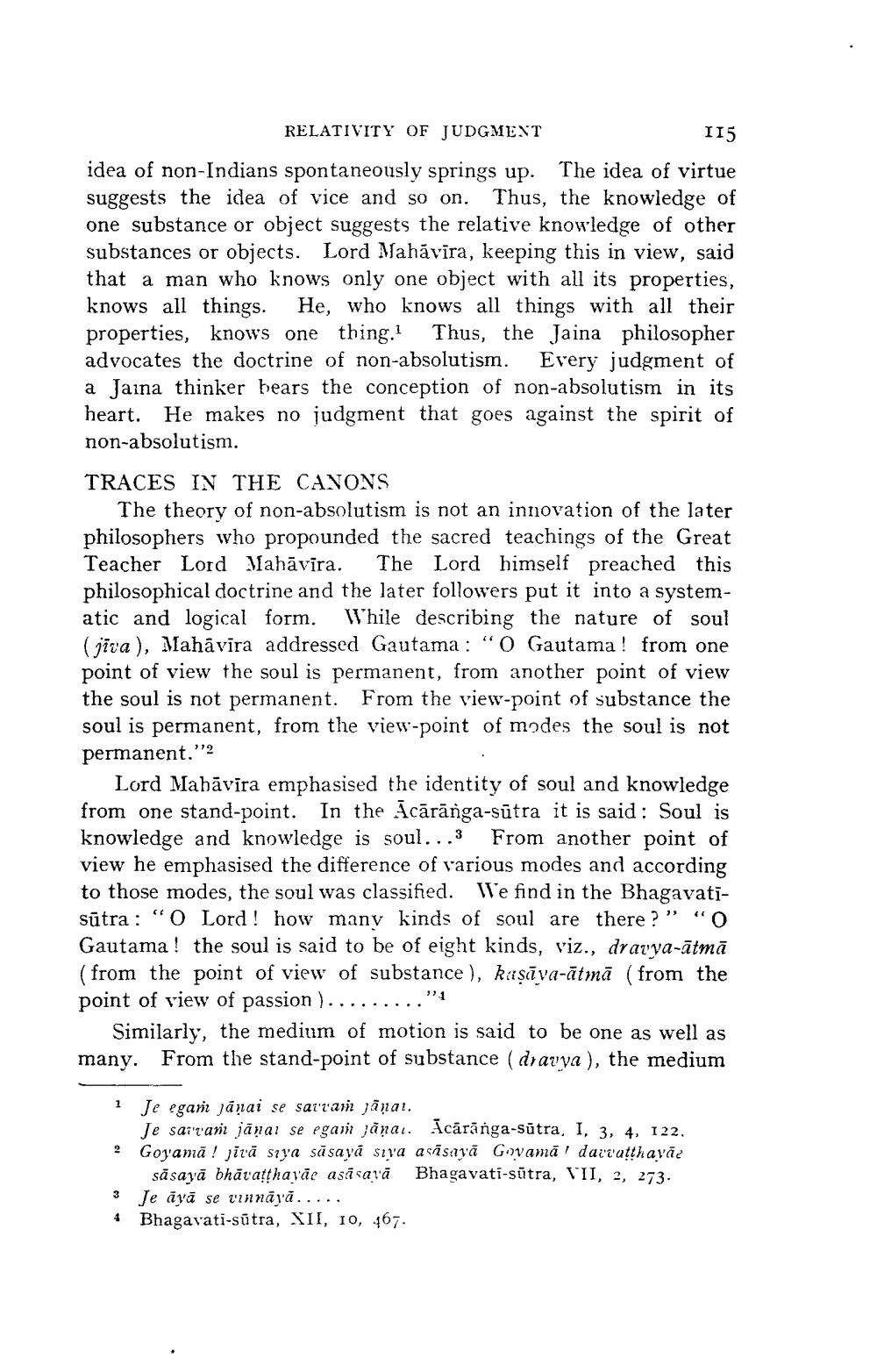________________
RELATIVITY OF JUDGMENT
115
idea of non-Indians spontaneously springs up. The idea of virtue suggests the idea of vice and so on. Thus, the knowledge of one substance or object suggests the relative knowledge of other substances or objects. Lord Mahāvīra, keeping this in view, said that a man who knows only one object with all its properties, knows all things. He, who knows all things with all their properties, knows one thing.1 Thus, the Jaina philosopher advocates the doctrine of non-absolutism. Every judgment of a Jaina thinker bears the conception of non-absolutism in its heart. He makes no judgment that goes against the spirit of non-absolutism.
TRACES IN THE CANONS
The theory of non-absolutism is not an innovation of the later philosophers who propounded the sacred teachings of the Great Teacher Lord Mahavira. The Lord himself preached this philosophical doctrine and the later followers put it into a systematic and logical form. While describing the nature of soul (jiva), Mahāvīra addressed Gautama: "O Gautama! from one point of view the soul is permanent, from another point of view the soul is not permanent. From the view-point of substance the soul is permanent, from the view-point of modes the soul is not permanent."2
Lord Mahavira emphasised the identity of soul and knowledge from one stand-point. In the Acārānga-sūtra it is said: Soul is knowledge and knowledge is soul...3 From another point of view he emphasised the difference of various modes and according to those modes, the soul was classified. We find in the Bhagavatisutra: "O Lord! how many kinds of soul are there?" "O Gautama! the soul is said to be of eight kinds, viz., dravya-ātmā (from the point of view of substance), kaṣaya-ātmā (from the point of view of passion).....
"11
Similarly, the medium of motion is said to be one as well as many. From the stand-point of substance (dravya), the medium
Je egam janai se sarvam janar. Je savam jāņa se egam jāņai. 2 Goyamā! jīvā siya sāsayā siya sasaya bhavaṭṭhavãe asa savā
3 Je aya se vinnāyā..... Bhagavati-sutra, XII, 10, 467.
4
1
Acaranga-sūtra, I, 3, 4, 122. asasaya Goyama davvatthayae Bhagavati-sutra, VII, 2, 273




